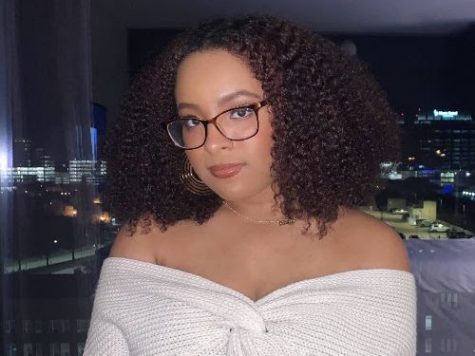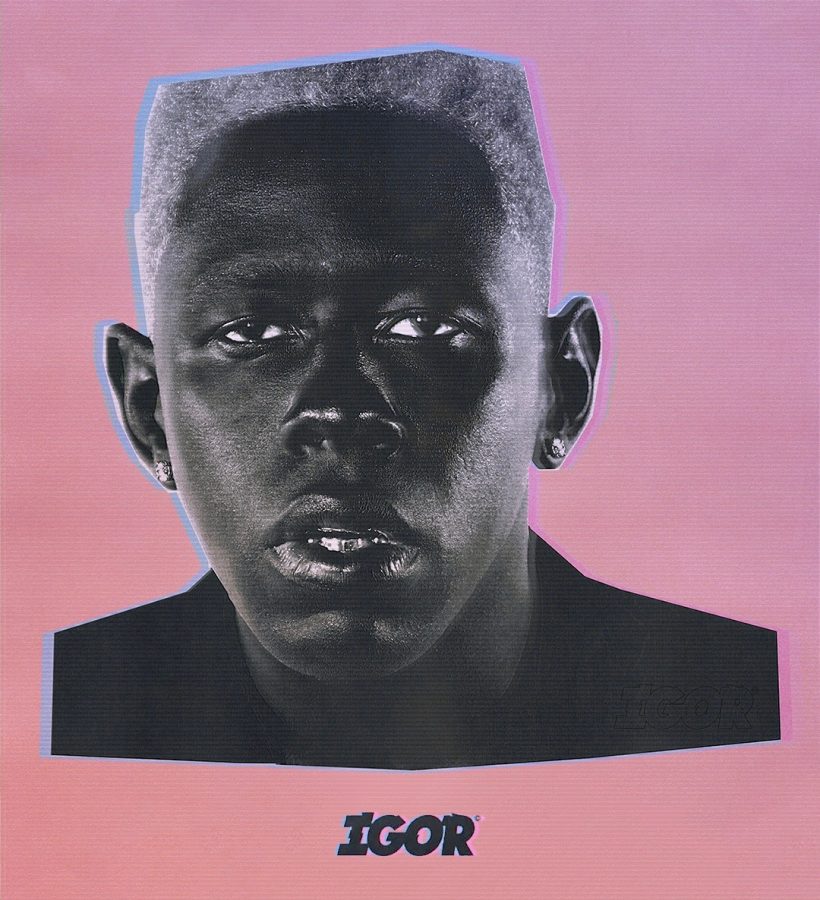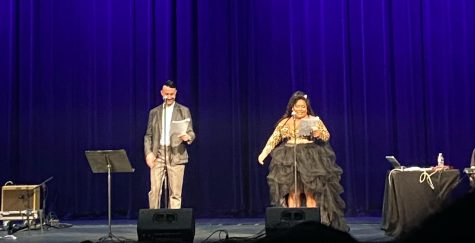Tyler, the Creator brings attention to lack of diversity in Grammy genres
Tyler, the Creator / Columbia Records
Tyler, the Creator was nominated for a Grammy in 2018 for his album Flower Boy before winning best rap album of the year for IGOR in 2019.
After receiving his first Grammy for his album “IGOR” for Best Rap Album, Tyler, the Creator expressed that the album’s categorization by the Recording Academy felt like “a backhanded compliment of sorts.”
Tyler’s album includes influences of pop, R&B, funk and rap, according to Rolling Stone, yet he received no nominations outside of rap. This isolation and miscategorization of black artists portrays an inability to recognize their cultural relevance in the mainstream music scene outside of R&B and rap.
“I don’t like that urban word; it’s just a politically correct way to say the n-word to me. When I hear that, I’m just like why can’t we be in pop?” Tyler said in a backstage interview at the Grammys.
The generalization of music genres pertaining to black artists is an issue that began in the 1980s. According to Britannica, “urban contemporary” refers to R&B or soul artists with “broad crossover appeal,” since radio stations were concerned with the inability to advertise black artists to a wider audience. The current usage of the term “urban” holds no sentiment to this and conveys racial stereotypes of the past by segregating black artists from the main, less “black” categories.
In a 2018 interview by Kobalt Music with Kobalt’s executive director Sam Taylor, Taylor states: “[urban] means it’s low-income, not safe… when you say urban music, to me, it’s letting me know that you think it needs rebuilding.”
Still, it’s not new for the Grammys to isolate black artists like this. Black artists notoriously lose to white artists in more mainstream categories, but the term “urban contemporary” would fall under the most backhanded of nominations. Since 2012, only black artists have won this category, including Frank Ocean’s “Channel Orange,” Beyonce’s “Lemonade” and Lizzo’s “Cuz I Love You.”
The category is defined as “music [that] includes the more contemporary elements of R&B and may incorporate production elements found in urban pop, urban Euro-pop, urban rock, and urban alternative,” according to the Recording Academy. Despite its vagueness, this category has solely been composed of black nominees in its 8-year run.
“Black music has never been respected by the Grammys to the point that it should be,” Sean “Diddy” Combs said at a pre-Grammy party last Monday.
It’s become normalized for black artists to not attend the Grammys because of this lack of recognition; artists like Kanye West and Frank Ocean boycott the event each year despite their relevance in pop culture.
The Grammys are widely known as the biggest night for music, yet the Recording Academy consistently fails to acknowledge the diversity of the music industry despite several artists speaking on the matter.
In choosing to provide separate categories for specifically black artists under the “urban” lens, they’re subconsciously upholding racial standards of the past. Music is supposed to be a celebration of the diversity in sounds and artists, and it is up to the Recording Academy to reflect this.

Hi y'all! My name is Elle. I am majoring in Communication with double minors in Spanish and Journalism. I have wanted to be a writer ever since I was a...

I'm Taheera Washington, and I'm one of the Newsletter Editors! I'm a senior majoring in Writing & Rhetoric with a concentration in Creative Writing...













Elizabeth • Mar 10, 2020 at 3:28 am
Thank you for articulating a concern that brings a heighten awareness about the entertainment industry’s biased notions on talent.
I hope Tyler and Columbia Récords are reading this.
Would love to read more articles from you.